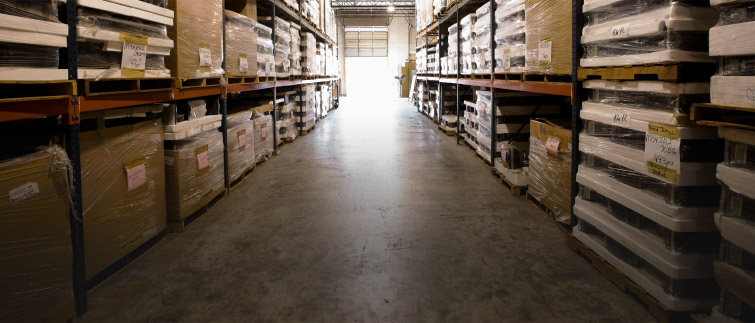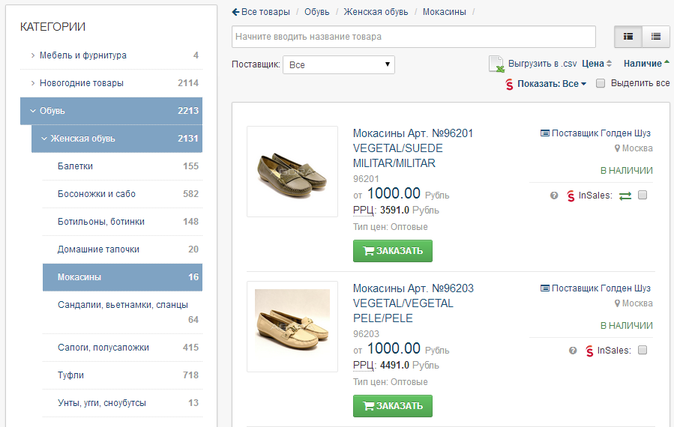E-commerce trends: Work on order

More recently, an online store could not be reposted without its own warehouse, to which suppliers shipped the necessary goods in batches. The volume of the electronic market is constantly growing, respectively, and the turnover of online stores is increasing. And this, in turn, causes the emergence of new models of their work with suppliers. One of them - work under the order.
What is it?
Everything is quite logical - if the online store has a lot of buyers, then it may be more profitable for the supplier to work with him, shipping the goods by the piece, when the situation requires. With such a scheme, it is often possible to sell more than with traditional shipments in lots.
')
Accordingly, for online stores here, plus the possibility of a significant expansion of its range at no cost. Turnover directly depends on the choice of breadth, it’s not just that there are so many goods in Lamoda - the more you can buy in the online store, the longer the user chooses, and the higher the likelihood that he will make a purchase in this place.
The scheme is simple - the goods are placed on a virtual storefront, and when someone wants to buy it, an application for shipment is sent to the supplier, and he already ships a conditional smartphone.
Problem
When working in a standard way with an offline warehouse, stores inevitably face the problem of working capital, the volume of which is limited by the possibilities of expanding the range. The warehouse area itself also influences - after all, it’s not possible to end up clogging it with goods. (By the way, colleagues from Audiomania recently had two excellent topics on the automation of warehouse processes.)

Few vacant space and working capital - less range - less sale. This is a rigid chain that can not be broken.
On the Internet, quite recently the situation was exactly the same as described above, however, funds are gradually appearing that allow one way or another to solve the problem of a small range without huge investments.
Moreover, today an online store can work fine not only without spending big money on a warehouse, but even without investing in the production of e-commerce content (descriptions of goods, their photos), which suppliers also begin to provide.
Accordingly, the online store takes descriptions and photos, places them, advertises and receives orders, and then reserves the goods in the warehouse at the supplier and takes it from there in a convenient way. This is an ideal system, but, unfortunately, not all suppliers are ready to work this way. Accordingly, the online store itself needs to look for suppliers who agree and can work on this model - it is not such an easy task that requires a lot of effort.
What to do?
As usual, since there is a problem, there must be a solution. And such a solution is gradually becoming the special B2B portals that gather on one site technologically savvy suppliers of goods and online stores interested in working with them. We also have a similar product - portal AgoraB2B .
It works like this: the B2B portal catalog contains thousands of products from various suppliers that can be exported to any online store. We, for example, upload via the API or in the .csv format. The data include quality descriptions, photographs, information on the availability and status of goods.

What does it give
In addition to the simple convenience of the system, it is quite effective for the entire e-commerce market. This fact illustrates well the case of Mebelion.ru online furniture hypermarket. This is a bright representative of the family of online stores, let's say, a new wave, who do not buy anything to their warehouse, but concludes contracts for the supply of necessary goods from suppliers' warehouses.
After connecting to the B2B portal, the company was able not only to buy goods, but also became a supplier of goods for smaller online stores. Mebelion was able to accumulate information on the balances in the warehouses of various suppliers - after all, the company does not have a warehouse - and then, using the portal, already display this data as “its own”, giving them access.
Accordingly, small online stores can order goods from Mebelion (or another similar store), without the need to independently agree on cooperation with various suppliers, who are more profitable to work with larger companies. Accordingly, in order to get the goods for sale, you need to make less effort than with a completely independent organization of processes.
Given the breadth of the online hypermarket commodity matrix (tens of thousands of products), having such a partner for small online stores can be very beneficial. In addition, on the B2B portals you can find several such major players, and due to this, expand your range of products - after all, they will also provide photos with descriptions of goods. It turns out that thanks to such "meta-suppliers" and B2B portals, the e-commerce industry can develop at a faster pace.
Source: https://habr.com/ru/post/214081/
All Articles